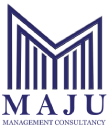Saudi Arabia’s pharmaceutical market is one of the largest in the Middle East, driven by strong demand, government healthcare investment, and a growing population. However, before launching any pharmaceutical products in the Kingdom, companies must comply with the strict Saudi Food and Drug Authority (SFDA) registration requirements.
This guide explains how to register pharmaceutical products in Saudi Arabia, the documents required, timelines, and compliance standards to ensure a smooth market entry.
1. Why Pharma Product Registration Is Mandatory in Saudi Arabia
- Legal Compliance: Only products registered with the SFDA can be imported, distributed, and sold in the Kingdom.
- Safety & Quality Assurance: The process ensures products meet safety, efficacy, and quality standards.
- Market Access: SFDA registration is essential to participate in government tenders and supply hospitals and pharmacies.
2. Regulatory Authority – SFDA
The Saudi Food and Drug Authority (SFDA) is the regulatory body responsible for:
- Evaluating pharmaceutical products for safety and efficacy
- Issuing product registration certificates
- Monitoring post-market compliance
- Approving manufacturing sites and GMP standards
Step-by-Step Process for Pharma Product Registration in Saudi Arabia
Step 1 – Appoint a Local Authorized Representative (LAR)
Foreign companies must appoint a Saudi-registered entity or agent to handle SFDA communications and submissions.
Step 2 – Create an Account in the SFDA e-Services Portal
The LAR or manufacturer must register in the SFDA Unified Electronic System.
Step 3 – Submit Product Dossier
Prepare a Common Technical Document (CTD) in line with SFDA guidelines, including:
- Administrative data
- Quality and manufacturing details
- Non-clinical and clinical studies
- Product labeling and packaging
Step 4 – GMP & Manufacturer Approval
SFDA may inspect the manufacturing facility or require GMP compliance documents.
Step 5 – Pay SFDA Fees
Registration fees vary depending on the product category and evaluation type.
Step 6 – SFDA Evaluation
The authority reviews documentation, lab tests, and compliance with Saudi standards.
Step 7 – Product Registration Certificate Issuance
If approved, SFDA issues a Marketing Authorization valid for 5 years, renewable.
4. Required Documents for Pharma Registration
- Valid manufacturing license from the country of origin
- GMP certificate
- Free Sale Certificate (FSC) or Certificate of Pharmaceutical Product (CPP)
- Full product formula and manufacturing process
- Stability data and shelf-life justification
- Product artwork and labeling (in Arabic & English)
- Clinical data (if applicable)
5. Timeline for Registration
- Preparation of dossier: 1–3 months
- SFDA evaluation: 6–12 months (varies by product complexity)
- Total estimated time: 7–15 months
6. Key SFDA Compliance Points
- All labeling must comply with SFDA language and format requirements.
- Products must meet the Saudi Arabian Standards Organization (SASO) specifications where applicable.
- Manufacturers must maintain post-market surveillance and report adverse events.
7. Benefits of SFDA Pharma Product Registration
- Legal entry into the Saudi market
- Increased credibility and trust among healthcare providers
- Access to lucrative government procurement contracts
- Protection against counterfeit and unapproved products
8. Common Challenges & How to Overcome Them
Challenge | Solution |
Lengthy approval timelines | Ensure complete and accurate dossier submission |
Language & translation issues | Use SFDA-approved translators |
Regulatory updates | Work with a local compliance expert for timely updates |
Manufacturing site inspection delays | Maintain readiness for GMP audits |
9. FAQ – Pharma Registration in Saudi Arabia
Can a foreign company register without a local agent?
How long is the SFDA registration valid?
Can multiple dosage forms be registered under one application?
Are generic drugs eligible for registration?
Conclusion
Registering pharmaceutical products in Saudi Arabia is a highly regulated but essential process for market access. With proper preparation, accurate documentation, and a reliable local authorized representative, companies can navigate SFDA requirements efficiently and enter one of the region’s most lucrative pharma markets.
Partnering with an experienced SFDA registration consultant in Saudi Arabia can significantly reduce approval time and ensure full compliance.

